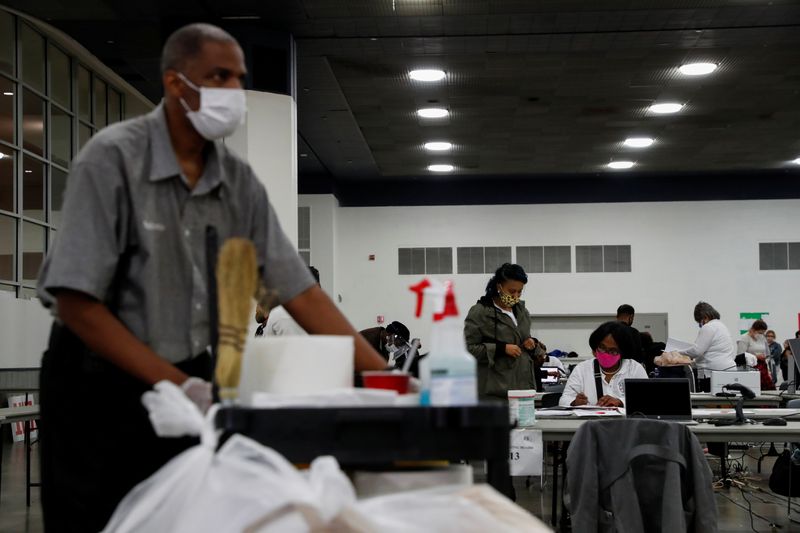By Tom Hals and Makini Brice
(Reuters) - A Michigan state court rejected on Friday a request by supporters of U.S. President Donald Trump to block the certification of votes and appoint an independent auditor in Detroit, which voted heavily in favor of Democratic President-elect Joe Biden.
The ruling is a setback for Trump and Republicans who have been trying to overturn Biden's victory in the Nov. 3 election by preventing officials from certifying election results.
"It would be an unprecedented exercise of judicial activism for this Court to stop the certification process of the Wayne County Board of Canvassers," wrote Timothy Kenny, chief judge of the Third Judicial Circuit Court of Michigan, referring to the county that includes Detroit.
The lawsuit alleged fraud and voting irregularities, which Wayne County has denied.
The judge rejected those allegations, writing: "Plaintiffs' interpretation of events is incorrect and not credible."
He noted that allegations, such as city workers encouraging voters to cast their ballot for Democrats, were not backed up by details, such as locations or times when such events allegedly took place.
The judge also said that one witness who had filed an affidavit had posted on Facebook (NASDAQ:FB) before the election that he speculated that Democrats were using the pandemic as cover for election fraud, undermining his testimony and credibility.
On Wednesday, the Trump campaign filed a similar lawsuit in U.S. District Court in the Western District of Michigan, alleging harassment of Republican poll challengers and a requirement they adhere to six-foot distancing rules that was not equally enforced against Democratic poll challengers.
Michigan is due to certify its election results on Nov. 23.
The campaign and Republicans have also sued in Georgia, Pennsylvania and Wisconsin seeking to block the certification of election results.

Also on Friday, the U.S. Court of Appeals upheld a lower court's decision before the election that a former Pennsylvania congressional candidate and four individual voters lacked standing to sue over the state's decision to allow "no excuses" absentee ballots and to extend mail-ballot deadlines due to the coronavirus pandemic.